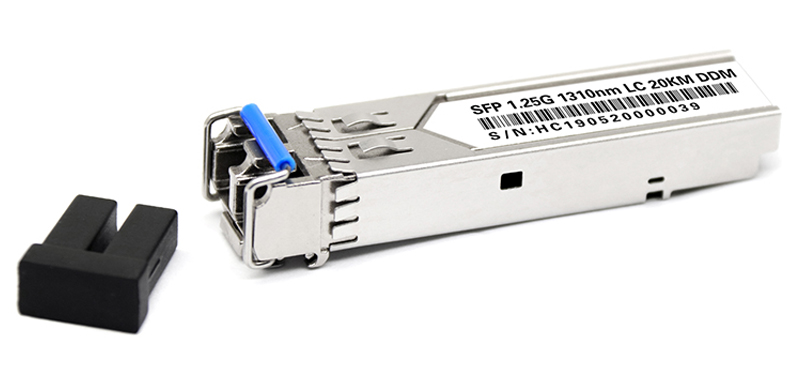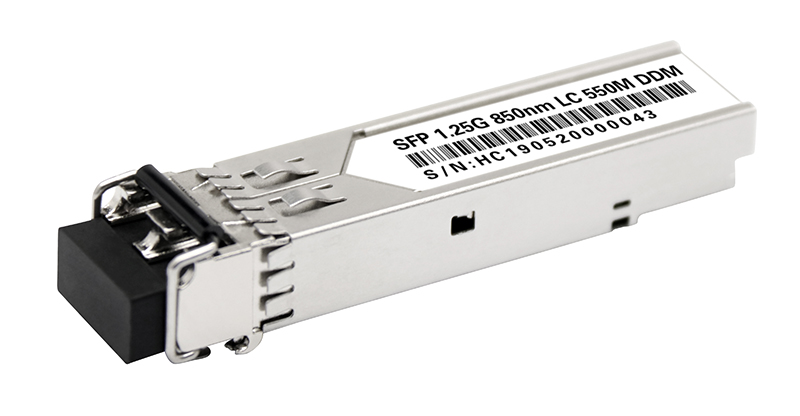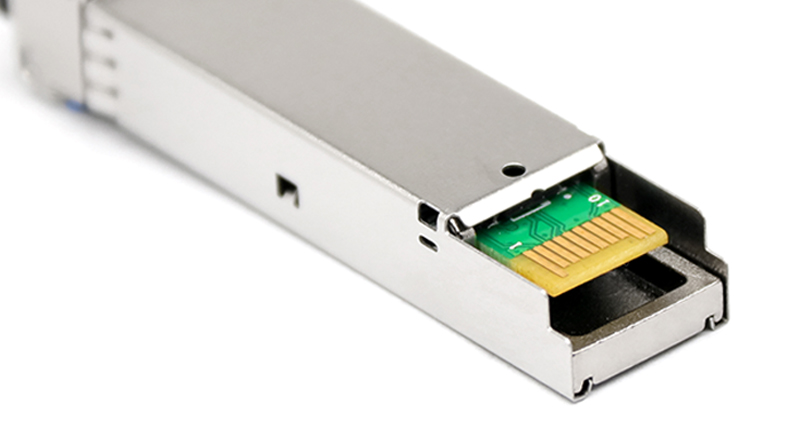SFP optical modules are small, hot-swappable optical transceiver modules. They are widely used in the communications industry. There are many types of SFP optical modules, such as BIDI-SFP, SFP, CWDM SFP, DWDM SFP, and SFP+ optical modules. In addition, for the same type of XFP, X2, and XENPAK optical modules, the SFP optical module can not only be directly connected to it, but also has a lower cost. Here we briefly talk about some basic concepts of SFP optical modules, tips, installation methods and the price of common compatible brand modules.
First,SFP optical module overview
1.Definition
The SFP optical module is packaged in a hot-swappable small package. The current maximum speed is 10G and the LC interface is high. The SFP abbreviation is Small Form-factor Pluggable, which can be easily understood as an upgraded version of GBIC. The SFP optical module is half the size of the GBIC optical module, and can be configured with more than double the number of ports on the same panel.
2.Composition
The SFP optical module consists of a laser, a circuit board IC and external components. The external components include a housing, an unlocking member, a snap, a base, a pull ring, a rubber plug, and a PCBA. The color of the pull ring can help you identify the parameter type of the module.
3.Development of SFP optical modules
In the optical module, GBIC and SFF are gradually replaced by SFP optical modules with the rapid development of the network. It is moving in the direction of miniaturization and hot plugging. The SFP optical module inherits the hot plugging feature of GBIC and also draws on the advantages of SFF miniaturization. The use of the LC header greatly increases the port density of network devices, adapts to the rapid development of the network, and has obtained the most extensive application. Although many higher-tech and newer optical module products have emerged, SFP optical modules will continue to exist for a long time. After the SFP, the development of optical modules is mainly toward higher speed development, and now 10G, 40G, 100G and other optical modules have appeared.
Second, SFP optical module tips
If the module has improper operation during use, it will easily cause the optical module to fail. In this case, don’t worry, check carefully and analyze the specific reasons. Generally, there are two main types of optical module failures, namely, the failure of the transmitting end and the failure of the receiving end. The most common reasons are as follows:
1. The end face of the fiber optic connector used has been contaminated, causing secondary pollution of the optical module optical port;
2. The optical port of the optical module is exposed to the environment, and the dust enters and causes pollution;
3. Use inferior fiber optic connectors, etc.
Therefore, pay attention to the cleaning and protection of the optical module during normal use. After use, it is recommended to plug the dust plug. Because the module’s optical contacts are not clean, it is likely to affect signal quality, which can cause line problems and bit errors.
Third, SFP optical module installation precautions
1.Flip the SFP optical module up and down vertically, jam the top latch, and pinch the SFP optical module on both sides. Push the SFP module into the SFP slot until the SFP module is in close contact with the slot. The springs on the top and bottom of the module catch the SFP slot)
2.Wear an ESD-preventive wrist strap when you install or remove an SFP optical module.
3.If the SFP optical module is not directly inserted or removed, the electronic components in the SFP optical module or SFP slot may be electrostatically broken and the device may be damaged.
4.Move the SFP optical module to the horizontal position to remove the fixed relationship between the spring and the SFP slot. Forcibly remove the SFP optical module and damage the clips in the spring or slot.
Optical modules are also receiving more and more attention in the communication industry. SFP optical modules are the most popular ones in the module. The above summarizes the knowledge of SFP optical modules from several aspects, and hopes to bring your real help.









